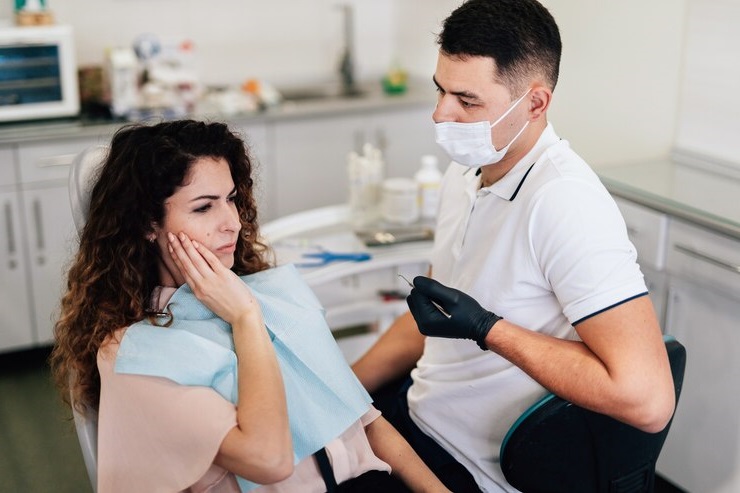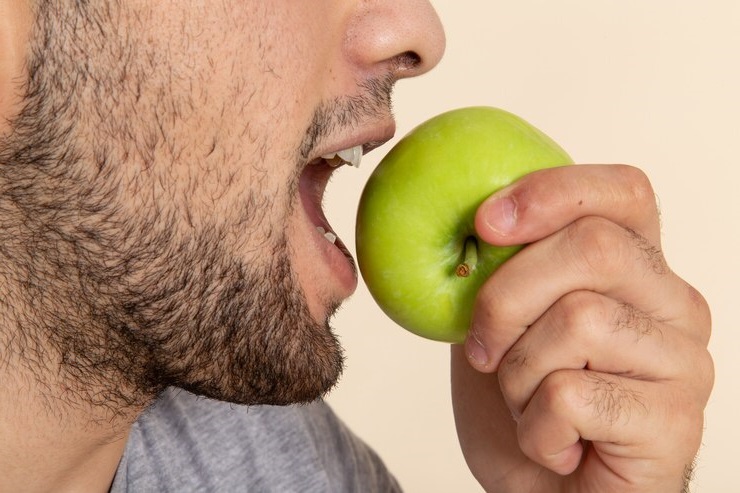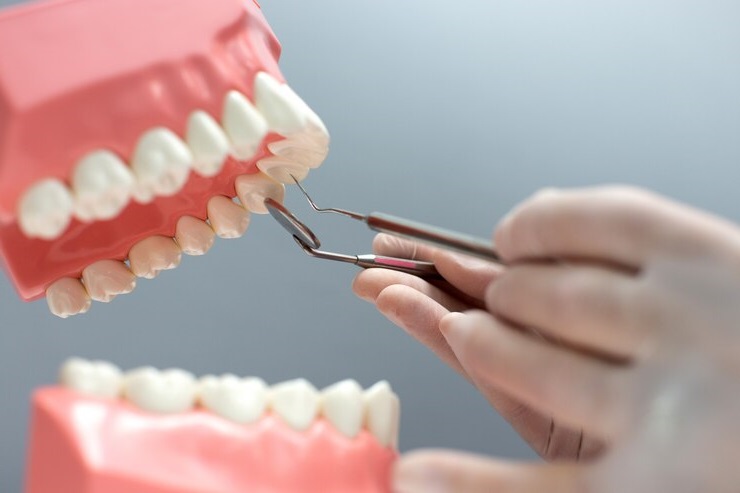
When thinking about probiotics, most people focus on their benefits for gut health, but did you know that probiotics can also have an impact on your oral health? It’s fascinating to explore how these beneficial bacteria can influence your teeth and gums, and whether probiotics affect teeth positively or negatively.
Understanding Probiotics and Oral Health
Probiotics are live microorganisms that provide numerous health benefits when consumed in adequate amounts. They are often referred to as “good” or “friendly” bacteria because they help balance the body’s microbial environment. While probiotics are commonly associated with digestive health, they also play a significant role in maintaining oral health.
The Role of Probiotics in the Body
Probiotics help to maintain a healthy balance of bacteria in the gut, which is crucial for digestion and overall health. But beyond the gut, probiotics can also colonize the mouth, helping to create a balanced microbial environment there as well. This balance is essential for preventing oral health issues such as tooth decay and gum disease.
How Probiotics Affect Oral Health
In the context of oral health, probiotics can help reduce the presence of harmful bacteria that cause plaque, cavities, and gum disease. By introducing beneficial bacteria into the mouth, probiotics can help to keep the oral microbiome balanced, reducing the risk of dental problems. This is one of the key ways that probiotics affect teeth.
The Benefits of Probiotics for Teeth
There are several benefits of using probiotics for maintaining and improving oral health. Let’s explore some of the most significant advantages and understand how probiotics affect teeth in a positive way.
Reducing Plaque and Cavities
Probiotics can help reduce the formation of plaque on teeth. Plaque is a sticky film of bacteria that forms on the teeth and can lead to cavities if not removed. By inhibiting the growth of harmful bacteria and promoting the growth of beneficial bacteria, probiotics can help reduce plaque formation, which is one way that probiotics affect teeth.
Preventing Gum Disease
Gum disease, or periodontitis, is a common oral health problem that can lead to tooth loss if not treated. Probiotics can help prevent gum disease by reducing inflammation and inhibiting the growth of harmful bacteria in the mouth. This is another significant way that probiotics affect teeth and gums.
Improving Breath
Bad breath, or halitosis, is often caused by an imbalance of bacteria in the mouth. Probiotics can help improve breath by restoring a healthy balance of bacteria, reducing the presence of odor-causing bacteria. This benefit demonstrates yet another way that probiotics affect teeth and overall oral health.
How to Use Probiotics for Oral Health
Knowing the benefits of probiotics for oral health is one thing, but understanding how to use them effectively is crucial. Here are some tips on how to incorporate probiotics into your daily routine to improve your oral health.
Probiotic Supplements
One of the easiest ways to ensure you’re getting enough probiotics is through supplements. There are many probiotic supplements specifically designed for oral health, containing strains that are known to benefit the mouth. When choosing a supplement, look for one that contains strains such as Lactobacillus reuteri and Bifidobacterium animalis, which are known to be effective in promoting oral health.
Probiotic-Rich Foods
Incorporating probiotic-rich foods into your diet is another excellent way to boost your oral health. Foods such as yogurt, kefir, sauerkraut, kimchi, and miso are rich in probiotics and can help introduce beneficial bacteria into your mouth. Regular consumption of these foods can significantly impact how probiotics affect teeth.
Probiotic Oral Care Products
There are also oral care products available that contain probiotics, such as toothpastes and mouthwashes. These products can help deliver beneficial bacteria directly to the mouth, promoting a healthy oral microbiome. Using these products as part of your daily oral hygiene routine can enhance the positive effects of probiotics on your teeth and gums.
Potential Side Effects of Probiotics
While probiotics are generally considered safe for most people, it’s important to be aware of potential side effects. Understanding these can help you use probiotics more effectively and ensure that they provide the maximum benefit for your oral health.
Digestive Issues
Some people may experience mild digestive issues when they first start taking probiotics, such as gas, bloating, or diarrhea. These symptoms usually subside after a few days as your body adjusts to the new bacteria. If these symptoms persist, it’s important to consult with a healthcare provider.
Allergic Reactions
In rare cases, individuals may have allergic reactions to certain strains of probiotics or ingredients in probiotic supplements. Symptoms can include rash, itching, or difficulty breathing. If you experience any of these symptoms, discontinue use immediately and seek medical advice.
Interactions with Medications
Probiotics can interact with certain medications, such as antibiotics or immunosuppressants. If you are taking any medications, it’s essential to consult with your healthcare provider before starting a probiotic regimen to avoid potential interactions.
Choosing the Right Probiotics for Oral Health
Selecting the right probiotics is crucial for achieving the desired benefits for your oral health. Here are some factors to consider when choosing probiotics.
Quality and Potency
Not all probiotic supplements are created equal. Look for high-quality probiotics that contain well-researched strains and have a high colony-forming unit (CFU) count. This ensures that you’re getting effective and beneficial bacteria, which can positively affect teeth.
Strain Specificity
Different probiotic strains offer different benefits. For example, Lactobacillus reuteri is known for its ability to reduce plaque and prevent gum disease, while Bifidobacterium animalis is beneficial for improving breath. Choose a probiotic with strains that align with your specific oral health needs to maximize the benefits.
Delivery Method
Probiotics come in various forms, including capsules, tablets, powders, and liquids. The delivery method can affect the efficacy of the probiotic. Capsules and tablets often have a protective coating that helps the probiotics survive the acidic environment of the stomach. Understanding the different delivery methods is part of learning how probiotics affect teeth effectively.
Maintaining a Healthy Oral Microbiome
In addition to using probiotics, there are several other steps you can take to maintain a healthy oral microbiome. These practices can enhance the positive effects of probiotics on your teeth and gums.
Good Oral Hygiene Practices
Maintaining good oral hygiene is crucial for a healthy mouth. Brush your teeth at least twice a day, floss daily, and use an antimicrobial mouthwash to reduce harmful bacteria. These practices can help create an environment where probiotics can thrive and positively affect teeth.
Healthy Diet
A healthy diet is essential for oral health. Limit sugary foods and drinks, which can promote the growth of harmful bacteria, and include plenty of fruits, vegetables, and whole grains in your diet. These foods provide essential nutrients that support oral health and help maintain a balanced oral microbiome.
Regular Dental Checkups
Regular dental checkups are essential for maintaining oral health. Your dentist can provide personalized advice on your probiotic use and overall dental care. They can also help identify any potential issues early on and provide treatment to keep your teeth and gums healthy.
Monitoring Your Progress with Probiotics
Keeping track of your progress when using probiotics can help you determine their effectiveness and make any necessary adjustments.
Keep a Journal
Maintaining a health journal where you note any changes in your oral health, such as reduced plaque, improved breath, or healthier gums, can be helpful. This can provide insights into how your body is responding to probiotics and whether any adjustments are needed.
Consult with a Healthcare Provider
If you’re unsure about the effectiveness of your probiotic regimen or have specific health concerns, consulting with a healthcare provider can provide personalized guidance. They can help you understand how probiotics affect teeth in a way that aligns with your health needs.
Be Patient
It can take time to notice the benefits of probiotics. Be patient and give your body time to adjust. Consistent use over several weeks or months can provide the best results, so understanding how probiotics affect teeth with patience is crucial.
Conclusion
Understanding how probiotics affect teeth is essential for maximizing their benefits and maintaining overall oral health. By choosing high-quality probiotics, taking them consistently, and pairing them with a healthy diet and good oral hygiene practices, you can support a healthy oral microbiome and enjoy the wide-ranging benefits of these beneficial bacteria. Remember to consult with a healthcare provider for personalized advice and to address any specific concerns you may have. With the right approach, you can make probiotics a valuable part of your daily routine and experience the full spectrum of their health benefits for your teeth and gums.





